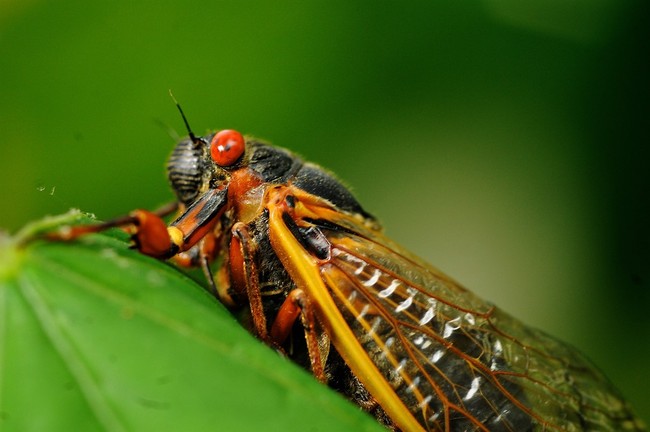There’s nothing quite like it in nature. Once every 17 years like clockwork, cicadas emerge from the ground and raise a cacophony of noise that disturbs the peacefulness of summer for many of us. Scientists tell us that we eventually get used to it and catalog it as background noise.
Advertisement
If you thought cicadas could make a racket, just wait. Next month, not one but two “broods” of cicadas will awaken and begin to swarm. The Northern Illinois Brood, or Brood XIII will hit Northern Illinois, Iowa, and parts of Indiana and Ohio.
The Great Southern Brood cicadas, or Brood XIX, will hit further south in Illinois as well as much of the Southeast.
And I’m smack dab in the middle where two cicada broods will be making their infernal racket looking for a mate.
I sympathize with the bugs. It’s hard to find a mate on this planet, even though there are 7 billion humans. For cicadas, the birds and the bees take on an entirely different meaning when both species see cicadas as a primary food group.
It’s true. Cicada Killer Wasps, also known as Sphecius speciosus, will also be fruitful and multiply as their food supply explodes.
According to pest control company Orkin, Cicada Killer Wasps capture cicadas by stinging them, which eventually paralyzes the cicada.
“One or more are placed in a burrow that the wasp creates, preferring bare soil areas,” Orkin technical services manager Frank Meek said. “An egg is laid on the live paralyzed cicada(s) which hatches into a wasp larva. The larva then consumes the live insects and overwinters.”
During the summer, the University of Illinois Extension noted a female wasp was expected to excavate as many as four cicada burrows and gather at least 100 cicadas, with the wasp population each year reflecting the previous year’s cicadas.
Advertisement
Not much to fear from these cicada killers. They generally ignore humans and concentrate on supplying food for their larvae when they hatch.
But cicadas themselves can not only be a noise nuisance; they also have been known to “stream jets of urine” on humans, according to the Georgia Tech College of Engineering.
In their brief several weeks aboveground, their mission will be to reproduce. Each male will attempt to attract females by producing a buzzing noise as loud as a lawnmower.
But beyond their prodigious numbers and raucous noise, new research published in PNAS reveals that cicadas are special in yet another way — their urination. Based on their size and diet, scientists suspected they’d urinate in droplets, but it turns out that these insects produce jets of pee.
Each male will be as loud as a lawnmower? I’d stock up on some quality earplugs, and don’t forget to buy batteries for your noise-canceling headphones.
“Excretion in general is not very well understood,” says lead author Elio Challita, a bio-inspired roboticist at Harvard University. “Cicadas are some of the smallest insects, to the best of our knowledge, that can form such jets at this small scale.”
Advertisement
In fact, by studying cicada urination, scientists are learning a lot about fluid dynamics with implications for a wide variety of applications.
“Insects are just the perfect laboratory for exploring handling fluids at the micro-scale,” says Anne Staples, a fluid dynamicist at Virginia Tech. “They fly through air, they drink water, they handle nectar. As this paper shows, they urinate — they excrete.”
